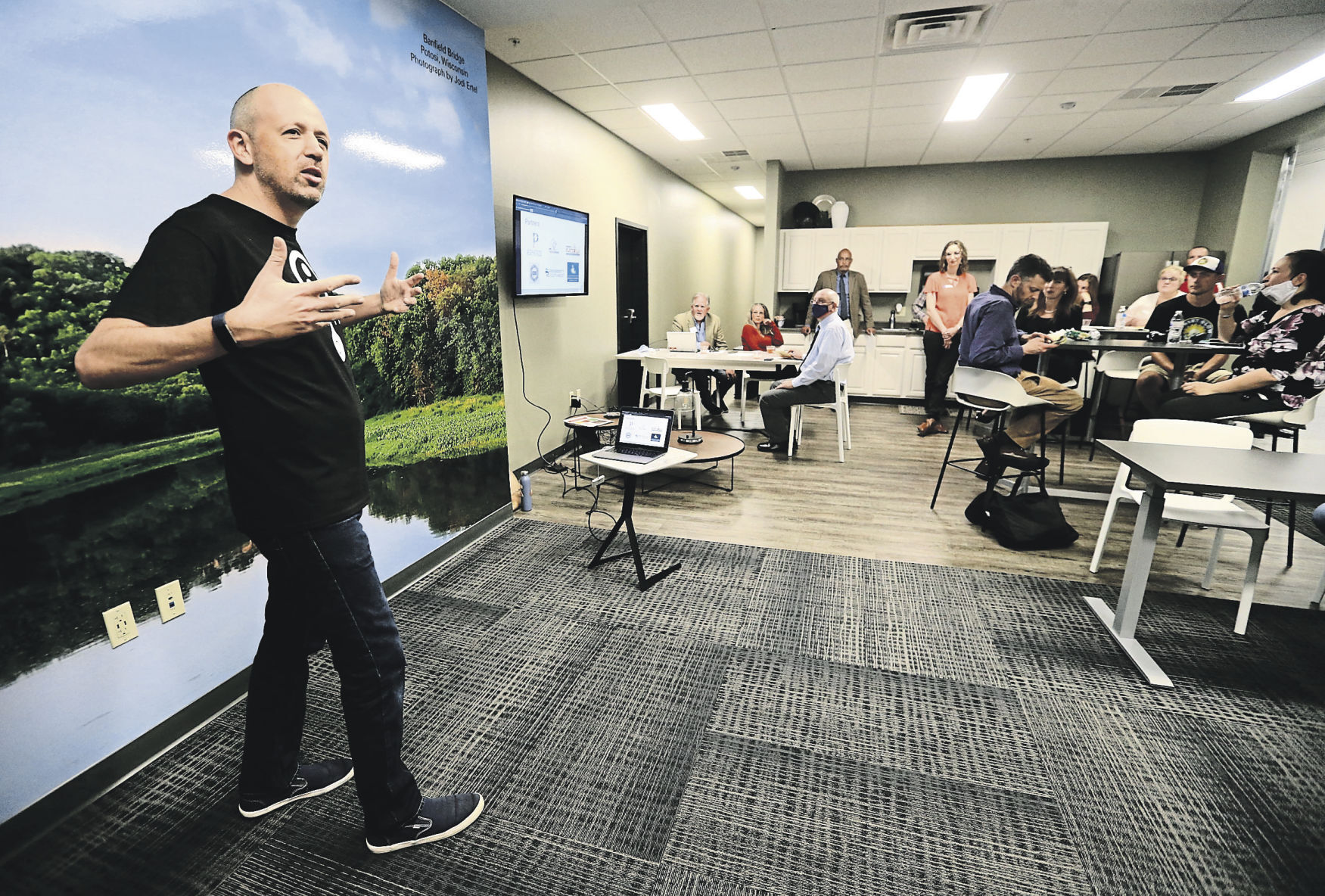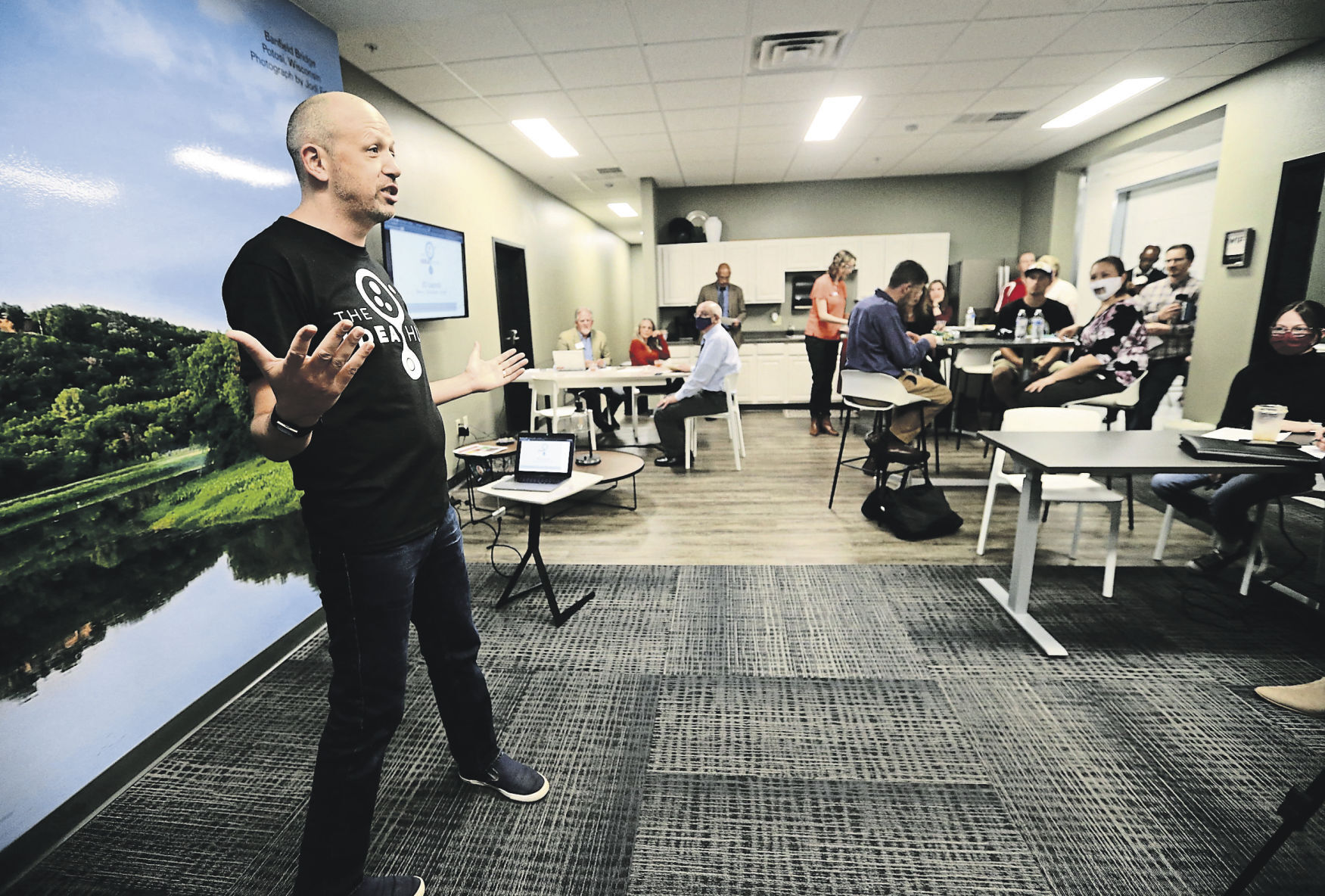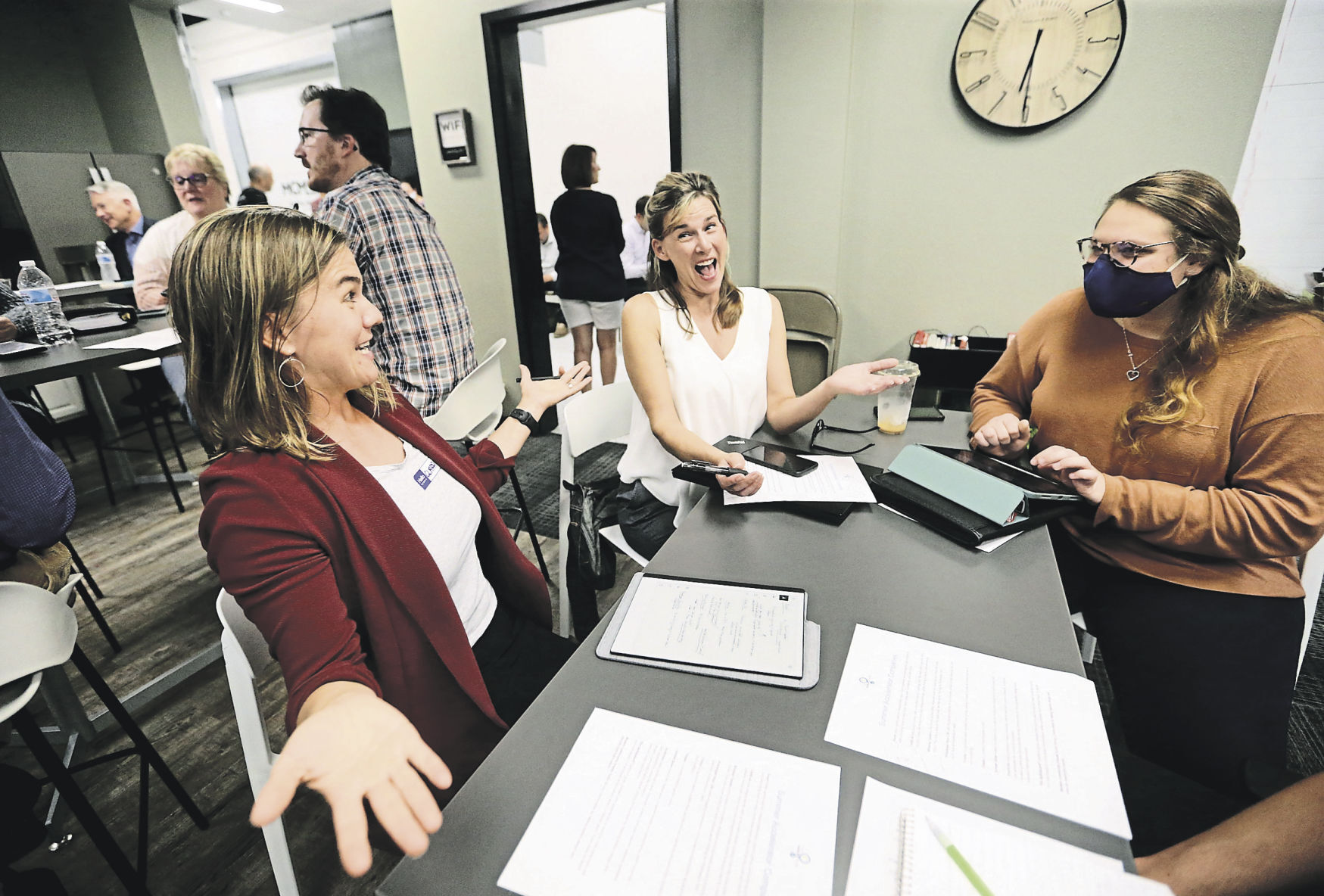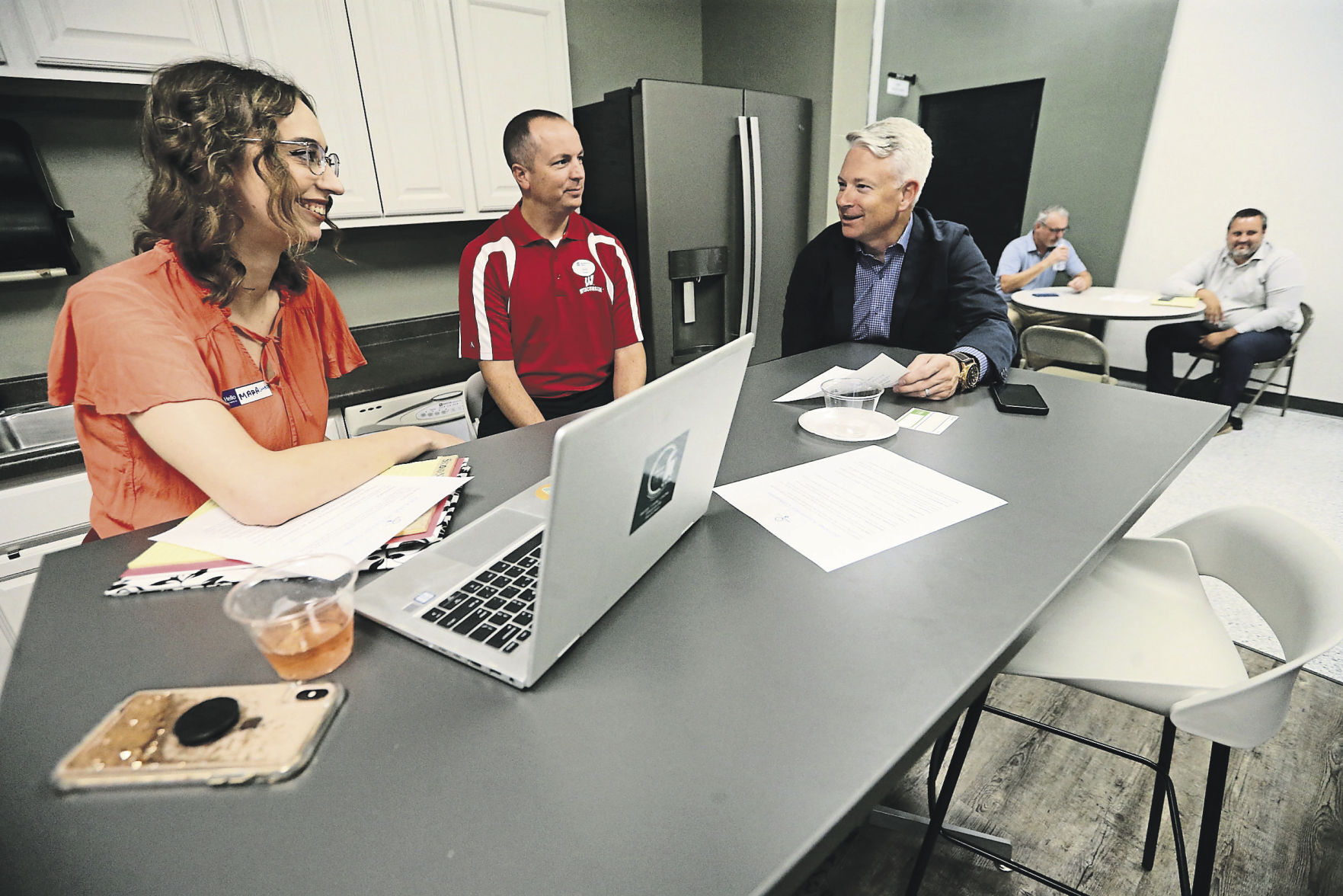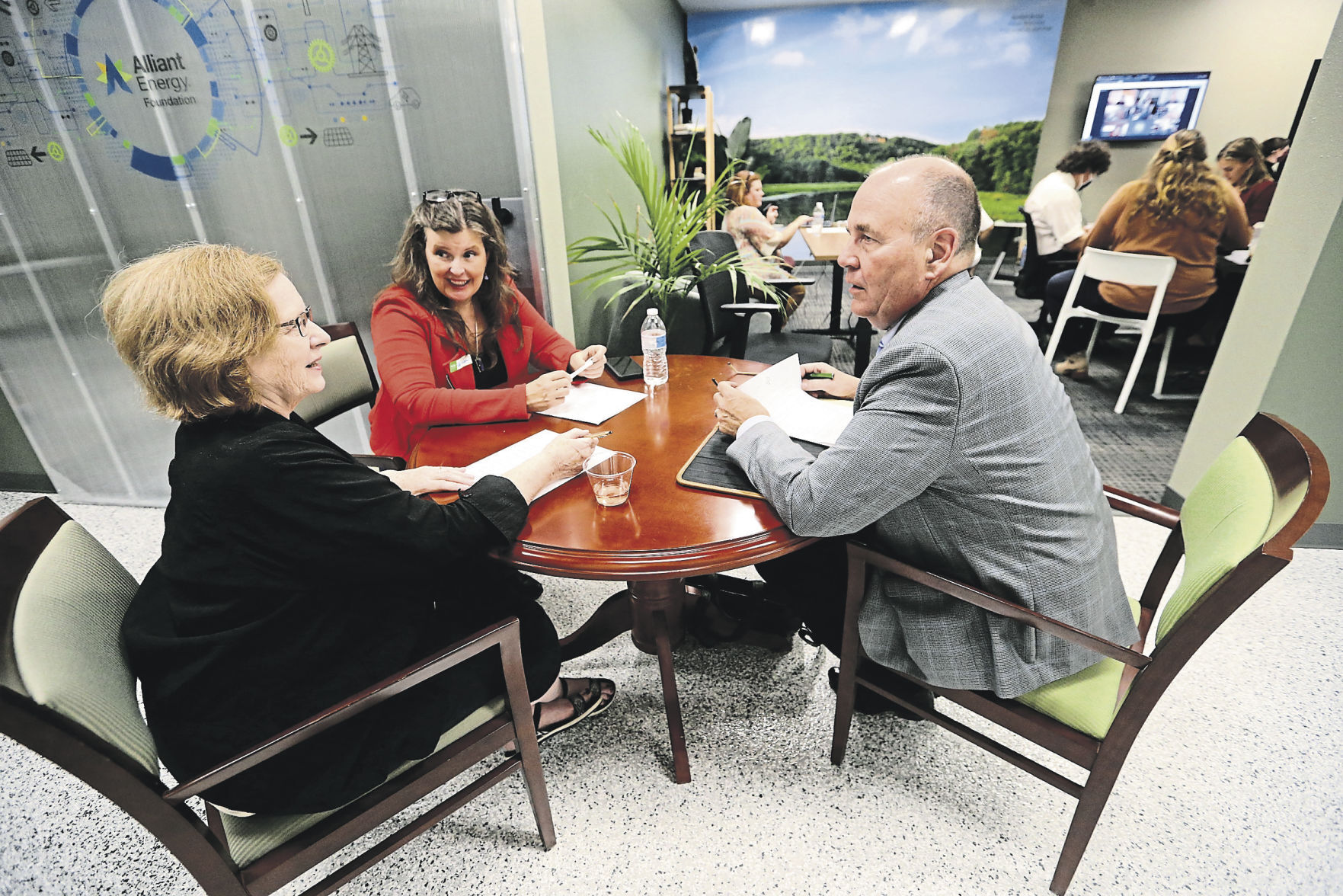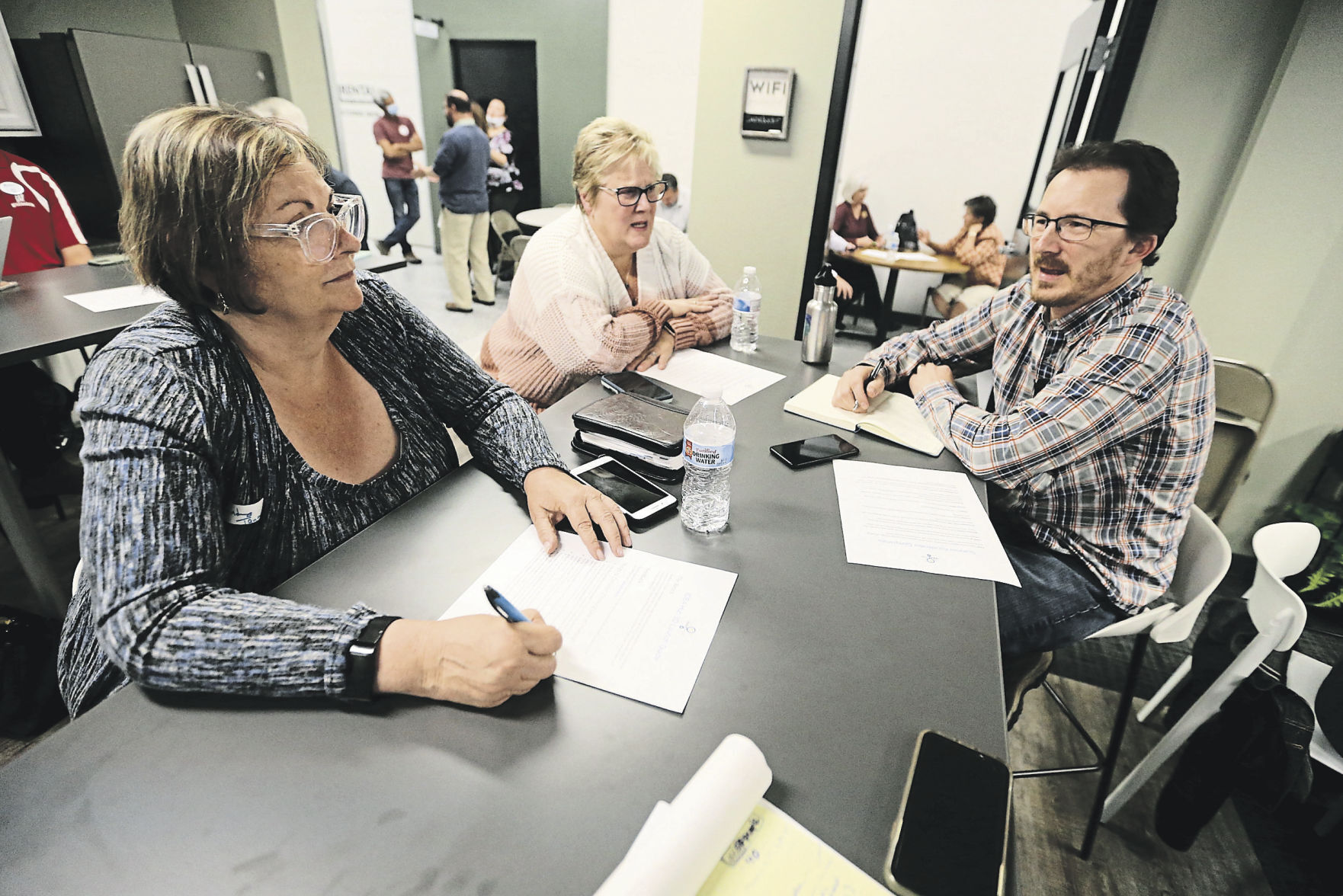For more information, visit www.ideahubaccelerator.com/.
Related links:
IDEA Hub Accelerator: www.ideahubaccelerator.com/
Trinity Gunshot Alarm System: trinitysoundtech.com/
Skillzboard: skillzboard.com/
As a former teacher, Stacy Jax said she couldn’t believe how long it took for information to get from an active-shooter situation to law enforcement. So she worked with a team of mathematicians, developers and computer engineers to create the Trinity Gunshot Alarm System.
“If a shot is detected, (it takes) less than two seconds to send messages out,” Jax said.
The sensor monitors its environment for the sound of a gunshot and notifies emergency responders and those in the building of the situation.
To further develop the marketing side of the product, Jax recently participated in the IDEA Hub Accelerator, a partnership between the University of Wisconsin-Platteville and the Southwestern Wisconsin Regional Planning Commission.
Maia Donohue, IDEA Hub Accelerator director, said the program’s goal is to help people in southwest Wisconsin turn their startup concepts into actual companies.
“We help remove barriers so that people with ideas, with a drive, can actually get stuff done,” Donohue said.
Jax said the IDEA Hub Accelerator was exactly what she needed to advance sales for the active-shooter alarm, helping carve out a niche and best meet customer needs. The team recently completed an installation in Ohio, and its sales are beginning to rebound following the COVID-19 pandemic.
The IDEA Hub Accelerator concept began a couple of years ago, according to Donohue, but it wasn’t until the university received a $1.1 million grant from the U.S. Economic Development Administration that it began making progress. The accelerator debuted in March with three programs – short, medium and long.
The short event introduces participants to entrepreneurship with 10-minute sessions that provide the opportunity to brainstorm products and solutions, then present a pitch to fellow participants.
The medium program is a “multiday event,” in which Donohue said participants have startup ideas, speak to mentors and walk through creating a business model. At the end, they pitch to potential investors.
The longest program, the summer accelerator, was the first to occur. It included 10 teams – several of which already had a product. The biggest aspect, according to Donohue, was the mentorship connections with people based in areas like Austin and San Francisco.
Gokul Gopalakrishnan, an engineering physics professor at UW-P, was on one of those teams, along with four UW-P engineering program graduates. They created Skillzboard, a product to help rock climbers learn grappling and other scaling techniques without being in a rock climbing environment.
“I thought we could really gain from some structured business coaching,” he said. “So we’d been reaching out to folks in business and entrepreneur programs getting help here and there.”
Gopalakrishnan said there are two aspects to rock climbing — the actual climbing that requires training, technique and strength; and learning the “various rope systems,” along with anchor and safety techniques. Several tools exist to train the climbing aspect, but he said there are “very few” to prepare for rope and safety skills.
“It’s been something that’s been in my mind for the longest time, then I got together with this group of students,” Gopalakrishnan said.
Seneida Biendarra, one of his former students, said when they started developing the product, they looked at portability and something that could be used in a home environment, as well as outdoors in a forested area. The accelerator, according to Biendarra, helped the team further develop its business side.
“It gave us those fundamental tools to actually know what you should be doing as a business,” she said.
And for Donohue, that’s the intent with the IDEA Hub Accelerator.
“One of our goals is to really diversify the workforce (and provide the) ability to do different jobs,” Donohue said.


